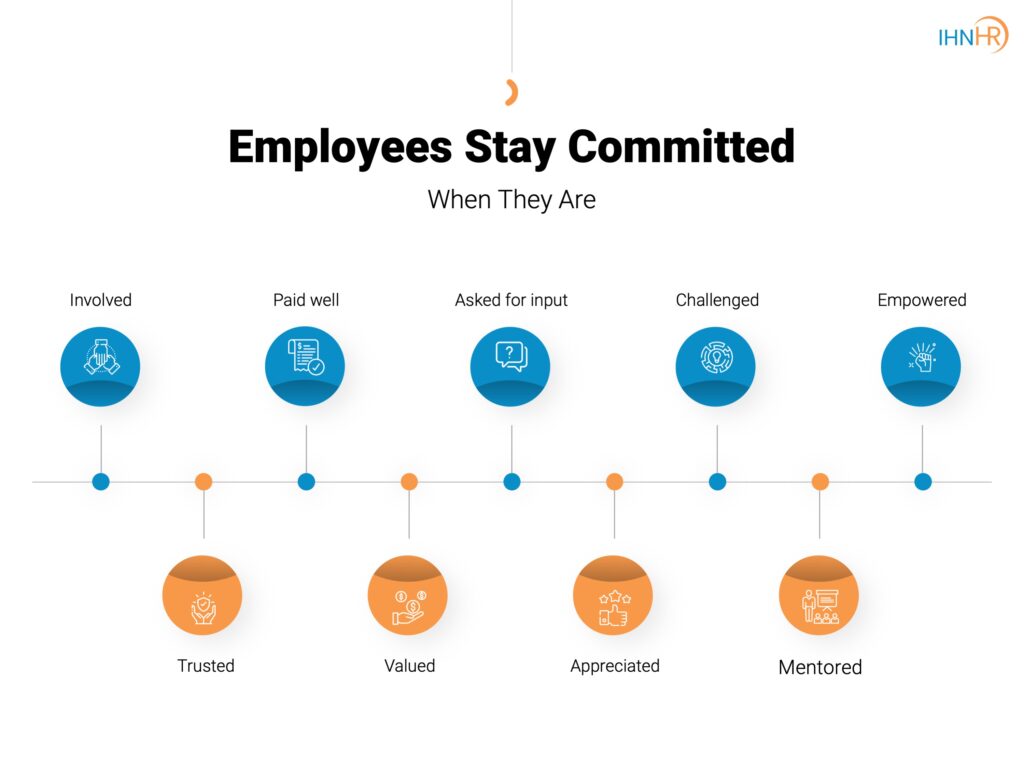Are Your Employees Valued? Employee Commitment Series

This blog series focuses on nine areas that keep employees committed to your organization. In our opinion, employees stay committed when they are Involved, Paid Well, Asked for Input, Challenged, Empowered, Trusted, Valued, Appreciated, and Mentored.
 Do Your Employees Feel Valued?
Do Your Employees Feel Valued?
Every organization that hopes to achieve its goals and objectives needs employees to commit to the task. As employers, it falls to us to keep our employees motivated. As any employer knows, unmotivated employees contribute less to reaching organizational goals.
Motivated team members are the hallmark of a progressive organization. In fact, they often go above and beyond for their organization.
What makes them so motivated? It’s simple—they feel valued.
Organizations that go out of their way to make their employees feel valued often reap great rewards. As a manager, one of the most important things you can do is to show your team their value.
And while it’s important from a productivity point of view, that’s not the only reason. From a Christian perspective, we all deserve to feel valued. To know that our contribution makes a difference.
To understand that our work is for the greater good.
How to Make Employees Feel Valued
There are several ways to contribute to an employee’s sense of value. For example, making it clear that every role has a direct impact on the good of the organization.
As a manager, it’s vital never to trivialize any of your employee roles. Employees must understand that their efforts help to cut a clear path to success for the organization. There are a variety of ways to cultivate a high sense of value among the workers in your organization, including:
Communication: Open the channels of communication between employees and leadership. It’s important to listen to employee opinions and follow suggestions where appropriate.
Making changes based on employee feedback sends a clear signal of value and appreciation.
Communication should always be professional, but never stiff or distant.
A leader should always be willing to facilitate smooth communication with employees. Open and natural communication with the leadership team makes employees feel valued.
Showing Appreciation: The best way to motivate employees to do more is to show appreciation for tasks already done. On a personal level, a “Thank you for a job well done” can lift employee morale faster and higher than just about anything else.
Many organizations send appreciation emails to employees after a significant win. Events dedicated to rewarding employees are also great on a yearly or even monthly basis. This type of reward system spurs employees to do more. But the organization must be consistent and transparent in its dealings to ensure sustainability.
Encouraging Work–Life Balance: As a manager, it’s important to appreciate and respect that employees have a life outside of work. Placing heavy value on work at the expense of employee personal lives is counterproductive. Work schedules should be flexible, even if only to a small extent. Managers should not be quick to say no when employees request time off to attend personal events.
A recent article in Accounting Today stated, “A new global survey via professional services network World Services Group found that among young professionals in North America (as well as the rest of the world), work–life balance was the biggest priority in their professional lives, beating out wealth and leadership opportunities.”
For any organization to produce results, you need the full commitment of all employees. Leadership should never simply expect employees to have the desire to move the organization forward.
The reason behind this is clear. Employees often have a lesser stake in the organization. Yet, as a manager, if you’re able to make your employees feel valued, there is no limit to what can be achieved.
__________________________
In HIS Name HR helps organizations build high-performance Human Resources programs. Visit them at In HIS Name HR .
Mark A. Griffin is the founder and chief consultant of In HIS Name HR LLC. Connect with him on LinkedIn or Twitter.
Receive Blog Updates
|
|
Thank you for Signing Up |




